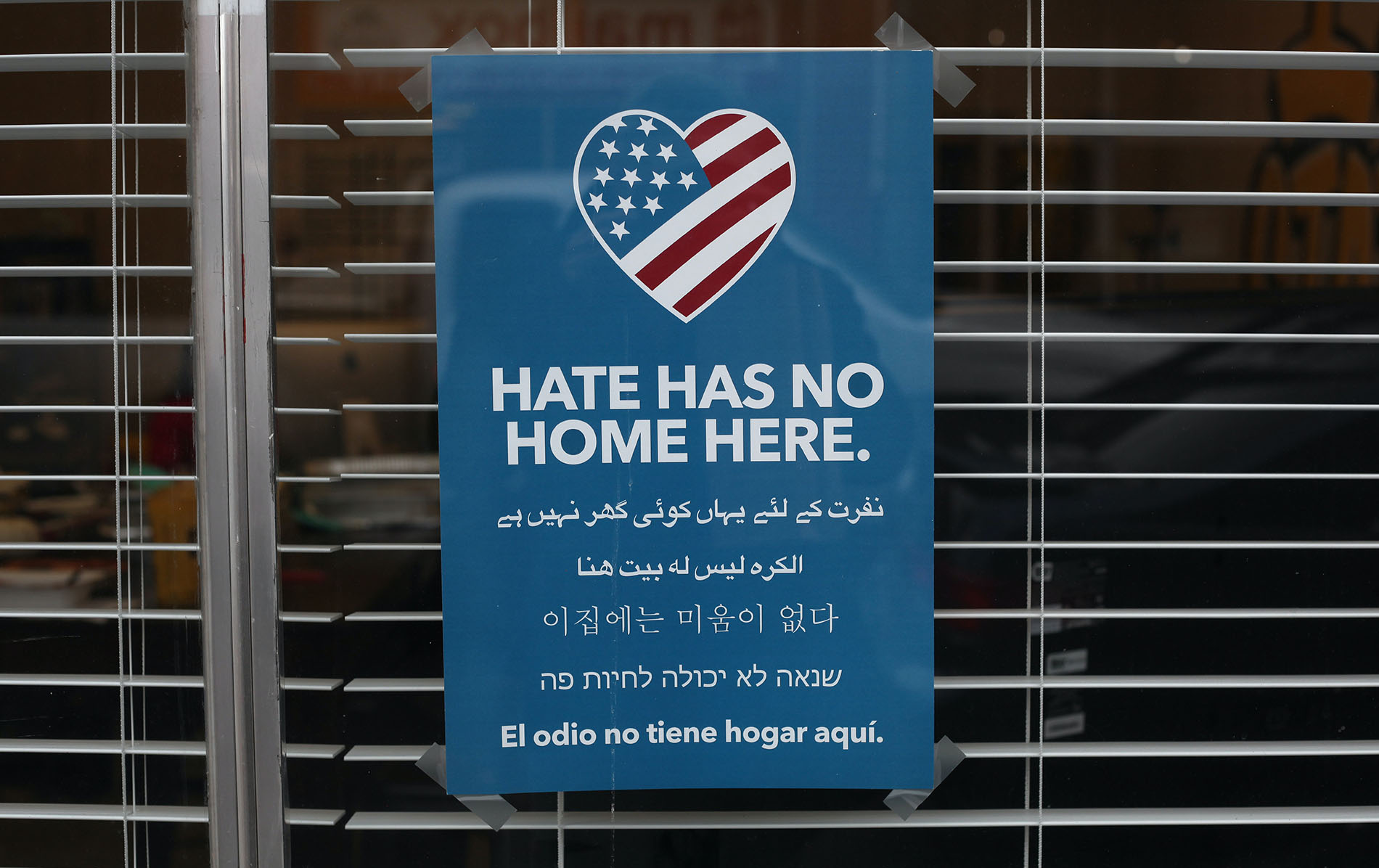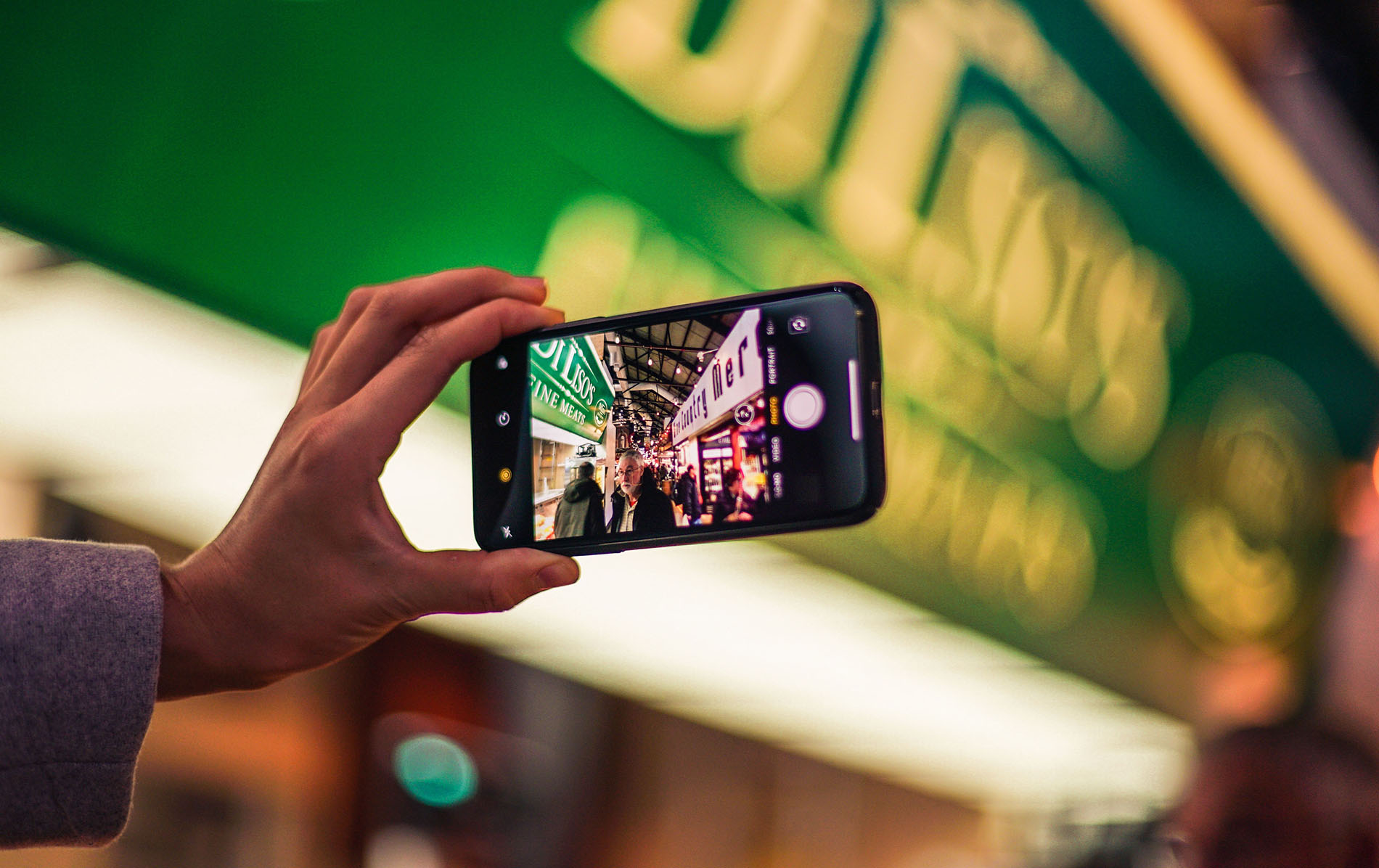Go to:
You’ve probably seen the hate crime headlines in recent weeks: A possible noose found at the Sonoma Raceway. The defacement of a Black Lives Matter Mural. Racist graffiti. A string of at least five incidents in Oakland.
Advocates say there has been an uptick in hate crimes as protests have erupted nationwide against police violence and racism. Not to mention that since the coronavirus pandemic began, there’s also been a spike in hate crimes directed toward the Asian American and Pacific Islander community.

For the past week, I’ve been researching recent hate crimes in the Bay Area to bring you this guide. But recently, my reporting took a very personal turn.
On a socially distanced road trip to the Yosemite Foothills with my partner Arash and a couple friends, we all stopped briefly at a grocery store, where Arash asked an employee if he could use the restroom — but was told they were closed to customers. He ran across the street to use another bathroom instead. While I went to wait in the car, Arash then returned to the grocery store to meet back up with our friends. He soon came out shaking.
It turned out that the store’s restrooms hadn’t been closed — and that our white friend and other white customers had been allowed to use them. Not only that, but when the employee who had denied Arash access saw he’d returned to the store, the man begun boasting loudly to a coworker about sleeping with loaded firearms, and how he was ready to discharge them on “crazy people.” As he said this, he gestured towards my partner — the only person of color in the store, aside from myself earlier — who was wearing a mask that said ‘Black Lives Matter.’ He continued making his threats as Arash swiftly left the store.
As a journalist who’d spent that week compiling resources for people facing situations just like this, even I was left asking questions. Was that a hate crime? What do we do? Who can we call? How do we process these feelings — of shock, of anger, of helplessness and suddenly feeling very unsafe?
What is the Definition of a Hate Crime?
Firstly, authorities will treat a hate crime differently than a hate incident. The legal distinction between a hate crime and a hate incident determines if police can conduct an investigation and charge the perpetrator — for a hate incident, they can't — but it can be tricky to distinguish the two. And it’s common for people to doubt the validity of their own experiences — as my partner and I did.
The bottom line is: Most anti-hate organizations collect reports of hate crimes and incidents. And if you want to file a report to police, but aren’t sure if it rises to the level of a crime, don't let that hold you back. You have the right to still report a hate incident, and these reports are valuable to law enforcement regardless. Even if it's not ultimately deemed a hate crime, police will still connect you with relevant resources, according to Sheryl Davis, the executive director of the San Francisco Human Rights Commission (HRC).
So what is a hate crime? We often think of them in terms of physical violence or property destruction, based on what makes news headlines. But the definition is actually more encompassing.
A hate crime is committed when an act that is illegal under the law is motivated by bias toward a specific group, such as on the basis of:
- Race or color
- National origin
- Religion
- Sexual orientation
- Gender or gender identity
- Disability
If the action or speech in question threatens a person or property, that’s a telltale sign it's a hate crime. In California, hate crimes are prosecuted by city and district attorneys under the state's penal code.

Hate incidents, on the other hand, are when an action is motivated by bias but doesn’t rise to the level of a crime. These can include:
- Name-calling
- Insults
- Distributing hate material in public places, or on someone’s own property.
These instances are often legally protected by the Constitutional right to freedom of speech. However, hate incidents can still be the subject of civil lawsuits, under the state's civil code.
The San Francisco HRC, and many other organizations doing anti-hate work, say it’s important to capture hate crimes and incidents. That's because they believe FBI and state law enforcement reports are under-representing the bigger picture of racism, violence and threats happening — both because of underreporting to law enforcement, and the absence of incidents that don’t rise to the level of a crime.
What Should I Do During a Hate Crime?
My partner Arash is from a Southern California town where the population is 70 percent white. He's told me stories from his childhood: from the time his family was shot at and berated to "go back to their own country," to being profiled and harassed by police before hitting puberty — all under the backdrop of Confederate flags proudly waving throughout his hometown. He's no stranger to racism.
But still — in that moment in the grocery store — he said he felt completely helpless. "I've been forced to prepare for experiences like this my entire life. But in the moment, none of that mattered because of the overwhelm of shock and emotion," Arash told me. "I didn't feel safe to speak up because I thought I'd be seen not as the victim, but as the aggressor — in an environment I was already unwelcome in."
Every hate crime or incident is different, and it can be challenging to know how to respond in the moment. The most important two things to remember are: trust your instincts, and prioritize safety above all else.
Here are some best practices for witnesses and victims of hate crimes in the moment, based on guidance from the Stop AAPI Hate team, the Anti-Defamation League and Attorney General Xavier Becerra's office:
If you're the one experiencing hate:
- If it's safe to do so, leave the area or move to a location with other people who might be able to support you
- Check in with yourself and try to remain calm. Focus on your breathing, limit eye-contact and be conscious of your body language
- It's best to not speak or engage with the perpetrator. But if it's safe to do so, use a calm and firm tone to verbally establish physical boundaries and condemn the attacker's speech or actions
- If there are witnesses present, ask them for support or intervention
- Seek medical attention, if necessary
- Following the incident, get emotional support from your loved ones and/or a mental health specialist
- Consider reporting the incident (see more on that below).
If you're witnessing hate:
- Introduce yourself to the person being targeted and ask how you can support them
- If the victim consents and it's safe to do so, continue to monitor the situation and document it
- Ignore the perpetrator and use verbal and nonverbal communication to deescalate the situation, if possible
- Invite the victim to leave with you, if possible
- Offer them support, ask how they're feeling and what they want to do next.
How Should I Document a Hate Crime?
Because of the volume of hate crimes we see in videos across social media, captured by people at the scene, getting out your phone might seem like a crucial step. But while documenting and reporting hate incidents are important, "personal safety should always be paramount," said Seth Brysk, the regional director of the Anti-Defamation League, in an email.

Some ideas for documenting hate safely are:
- Write down notes about what happened and the exact words that were said
- Write a description of the perpetrator(s) and vehicle, if relevant, and collect information from any witnesses
- Save all evidence, and take photos and video, only if you feel safe doing so
- Collect the names and contact information of any other victims and witnesses
- If you want to, and feel safe doing so, contact the local police or sheriff and/or report to community organizations.
How to Report Hate if You Don't Want to Involve Police
If you don’t wish to involve the police by report a hate crime or incident to them, there are community organizations and some city localities collecting reports in order to educate others, inform policy and show service providers where support is needed.
"crime" - Google News
July 10, 2020 at 06:23AM
https://ift.tt/2W8Rpii
What is a Hate Crime? And What You Can Do if You Experience One - KQED
"crime" - Google News
https://ift.tt/37MG37k
https://ift.tt/2VTi5Ee
Bagikan Berita Ini














0 Response to "What is a Hate Crime? And What You Can Do if You Experience One - KQED"
Post a Comment